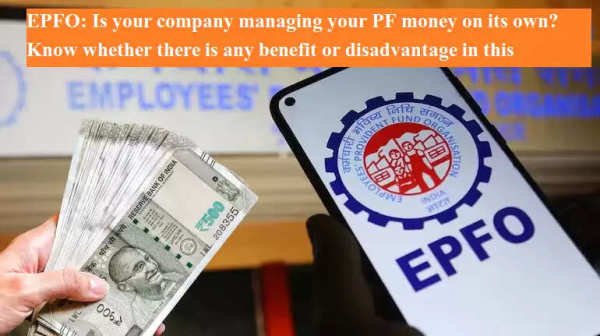
If you're a salaried employee in India, you might assume that your Provident Fund (PF) contributions are directly handled by the Employees' Provident Fund Organisation (EPFO). However, that's not always the case. Over 1,500 companies in India have received exemptions to manage PF funds through their own private trusts, instead of depositing them with the EPFO. This raises an important question — is it beneficial or risky for employees?
Here's everything you need to know about EPFO exemptions, how they work, and what you should be watching out for.
An Exempted Establishment is a company that has received official approval from the Central PF Commissioner to manage its employees' provident fund through a self-managed trust, instead of routing it through EPFO. These trusts are known as PF Trusts, and they are required to operate under strict compliance norms, including providing returns that are equal to or higher than the EPFO-declared interest rates.
The exemption is granted only if a company can prove that:
It can offer returns that match or exceed the interest declared annually by EPFO.
It ensures full transparency, timely settlements, and safeguards employee funds.
It operates under internal rules that are aligned with EPFO’s regulatory framework.
Currently, EPFO offers an annual interest rate of 8.25%, which sets the benchmark for all exempted PF trusts.
If managed honestly and efficiently, a self-run PF trust can offer multiple advantages to employees:
Faster processing of PF withdrawals and loan applications.
Better customer support and employee-friendly grievance redressal.
In some cases, companies offer bonus interest or higher returns than EPFO.
Timely disbursement of refunds or settlements.
Employees of organizations like ONGC, BHEL, and SBI, which have decades-old PF trusts, often enjoy seamless experiences in PF claim settlements.
Despite its advantages, the exemption model isn’t without risks:
The entire fund’s safety relies on the company’s financial health and ethical conduct.
If a company becomes insolvent or mismanages the fund, employees may face serious losses.
The level of audit and compliance scrutiny in private trusts may not match EPFO’s standards.
Cases of fraud or misappropriation, although rare, cannot be ruled out.
EPFO conducts annual audits of all exempted establishments. If any violations or irregularities are found:
The exemption can be revoked.
The company may be required to transfer employee funds back to EPFO’s management.
EPFO ensures that interest is credited on time and that rules are being followed diligently.
According to government data, more than 1,500 companies in India operate as exempted establishments. This includes a mix of public sector undertakings, government organizations, and large private firms. The model is particularly popular among legacy corporations that have maintained their own PF trusts for years.
While the exempted establishment model can be safe and beneficial, employees need to stay alert:
Regularly check your PF passbook and contributions.
Verify whether interest is being credited at rates matching EPFO.
Stay updated on your company trust’s audit reports and financial health.
Raise concerns promptly if transparency or fund access becomes an issue.
EPFO exemptions offer companies a chance to streamline PF management while giving employees quicker access to their money. But this model is only as strong as the trust and transparency maintained by the employer. Employees should stay informed and engaged with their PF account status, especially if their company falls under the exempted category.